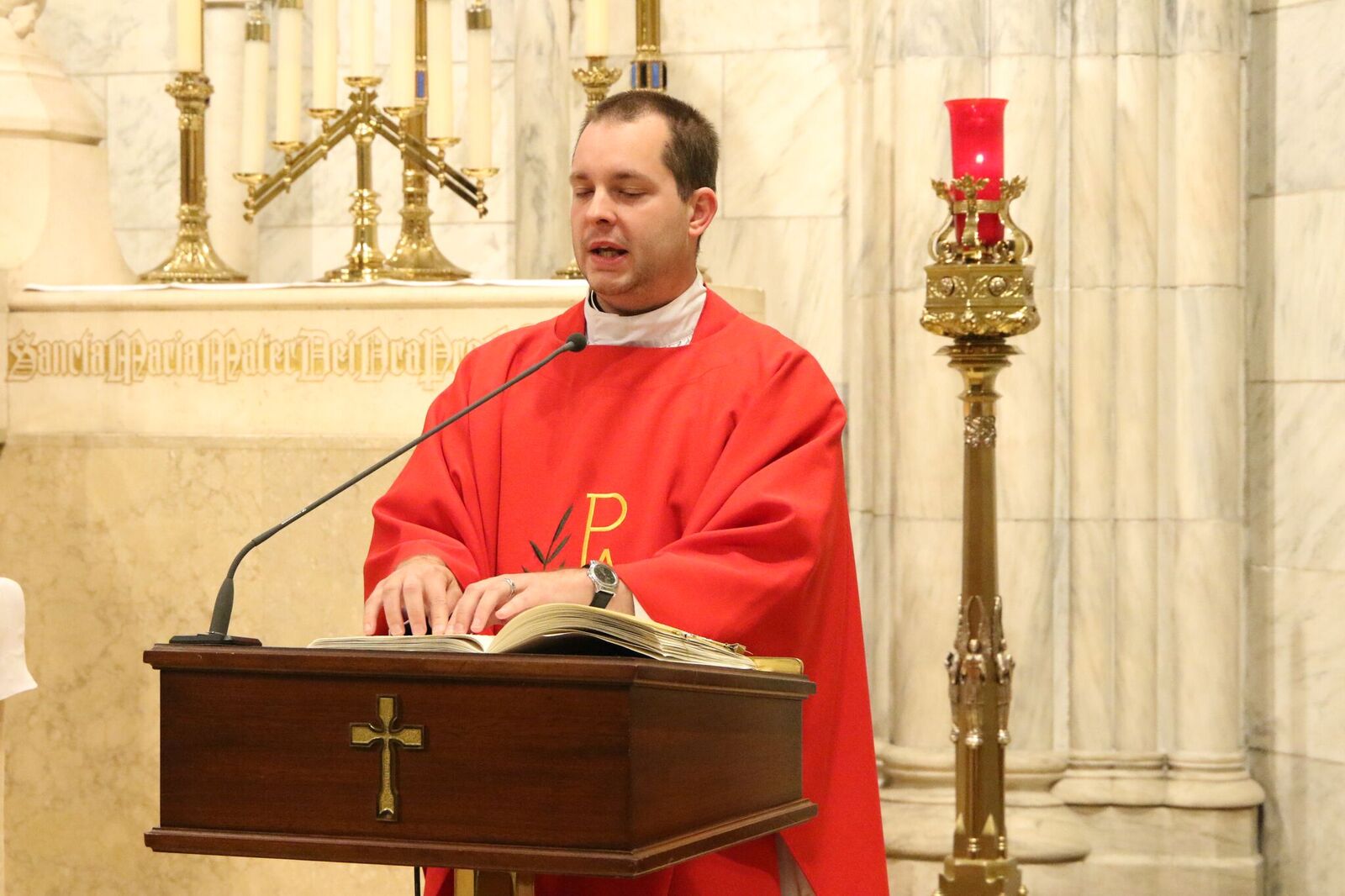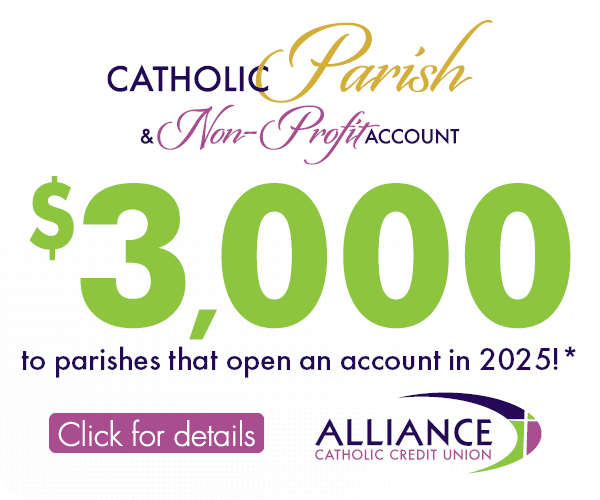New York-based publisher of braille and audio Catholic resources serves nearly 50 clients in Archdiocese of Detroit
DETROIT — In the 2010 dystopian movie The Book of Eli, the main character attempts to deliver the last copy of the Bible to a secret society who can print and distribute the book to Earth’s remaining inhabitants, who know nothing of its message.
The book is stolen by a villain, who later discovers — spoiler alert — he cannot read the Bible because it is printed in braille. Eli is blind.
In reality, there is a society — the Xavier Society for the Blind — that prints Bibles and other Catholic books in braille to make them accessible to those who are visually impaired.
According to the group’s executive director, Malachy Fallon, the Xavier Society's mission is to provide “reading materials to enable blind and visually impaired people to learn about and practice their faith.”
Blind from birth, Michael Powell is grateful for the materials the society has provided to him and others like him. A member of St. Mark Parish in Warren, Powell is one of 47 patrons of the Xavier Society in the Archdiocese of Detroit.
Though Powell said blind persons can obtain most books in audio form from the Library of Congress, he points out that materials supplied by the New York-based Xavier Society are either Catholic or support the Catholic faith.
“They are the only real clearinghouse for Catholic materials for blind people,” Powell said. “They are the largest, and as far as I’m concerned, the only ones in that area really doing it.”

Powell, who is a professional musician and cantors at his church, said the braille Mass Propers are a great help to him in his music ministry.
“I use the braille text to proclaim the responsorial Psalms and sing the Alleluia verses throughout the year,” said Powell, who is active in the National Federation of the Blind in Communities of Faith. “Having the readings in braille also helps me prepare and prayerfully reflect when I serve as a cantor or select music to be used as part of the liturgy.”
The Xavier Society began its mission nearly 120 years ago. Located on the grounds of the current Xavier High School (formerly Xavier College) and St. Francis Xavier Parish in New York City. One of its founders, Fr. Joseph Stadelman, was a Jesuit priest.
“We have always been considered a Jesuit apostolate,” Fallon said. The other founder was a visually impaired woman named Margaret Coffey, who taught blind children.
All of Xavier’s materials are provided to its patrons free-of-charge, with costs covered by grants and benefactor donations. With a staff of only six, including one braille transcriber, the Xavier Society serves nearly 2,000 people, and sends out hundreds of thousands of pages of braille each year.
“There are many more people out there who, if they knew about us and knew we provided these services free of charge, would contact us and sign up to receive our materials,” Fallon said.
Many of the Xavier Society's patrons are active in parish work, including — some might be surprised to learn — as lectors.
Frank Bonfiglio, a Xavier patron, lectors at his parish, St. Kateri Tekakwitha in Dearborn. In the 1990s, he worked for the Archdiocese of Detroit, serving people with disabilities.
“One of the things I was really concerned about was to make sure blind Catholics had access to the Scriptures,” said Bonfiglio, who added he appreciates having resources such as the Bible, devotional books and Mass Propers available in braille.
Mass Propers — basically the Sunday Mass readings and other Mass information, similar to a weekly missalette — are among the most popular items provided by the Xavier Society, which mails more than 750,000 pages annually to about 800 patrons.

In addition to braille books, Xavier publishes audio books, read and recorded by volunteers who offer their services remotely.
Recently, the Xavier Society updated all of its audio materials in a format compatible with audio players provided for free by the National Library Service for the Blind and Physically Handicapped.
Fallon estimates about a half a million people in the United States have these audio players, so the change represents a chance for the Xavier Society to reach a much wider audience.
In addition to providing materials for children in religious education classes, the Xavier Society also publishes what it calls the “Catholic Review” three times a year — a compilation of magazine and other articles related to the Catholic faith, in both audio and braille formats. Patrons also receive a monthly email newsletter and a regularly updated catalog called the “Xavier Review.”
Fallon said most of the content the Xavier Society provides is Catholic or religious in nature, but not exclusively.
“For example, I read a book called 'The Fisherman’s Tomb' about the search for St. Peter’s tomb underneath (St. Peter's) Basilica (in Rome). It is not Catholic dogma or theology, but it’s a great read about Catholic Church history. So we have done that in braille.”
To receive materials from the Xavier Society, patrons must be certified as visually impaired by their parish priest, a medical professional, social worker or other appropriate authority. An application form is available on the society's website.
“I think we are lenient relative to other organizations who serve the blind because we don’t want to put up any more barriers,” Fallon said. “But, at the same time, given the fact we give our materials away free-of-charge, we want to be sure our materials are going to people who truly need them.”
Xavier Society for the Blind
To learn more about the Xavier Society for the Blind, which publishes Catholic formation materials and resources in audio and braille formats, visit its website, xaviersocietyfortheblind.org. For a list of available resources, click here.








